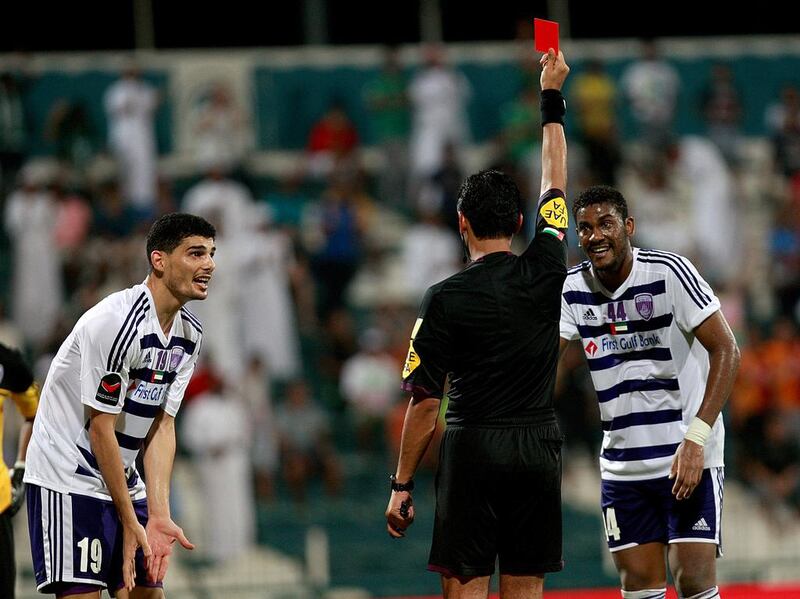Jorge Fossati sat in front of his first Al Ain audience and said all the right things. He spoke of a new challenge, "a nice challenge". He immediately ingratiated himself with the club's supporters, those with whom he said he shared "the same mentality".
He tapped his chest and waved his thanks. He spoke of dominating not only domestically but on the continent, too. He offered platitudes to the Al Ain board for “their confidence and their welcome”.
Then he uttered a few sentences that, in hindsight, were harbingers to his swift unravelling.
“With all my respect for the past, I’m coming here to do my job and think only about what I can affect,” Fossati said. “I hope [the players] like the idea. Thank God, in 20 years as a coach I’ve had a very good relationship with my players.
“I didn’t have one team that didn’t like our idea, so I am optimistic the Al Ain players will like it also. To convince the players, first you have to have conviction in yourself.”
Seven weeks later, the man brought to replace Cosmin Olaroiu nowalso needs replacing. During the briefest of dalliances with the UAE champions, Fossati failed to convince, first the players, and then his employers. His conviction to that idea – to his football philosophy – proved too strong, too stubborn.
Fossati was steadfastly committed to playing 3-5-2; his training laborious and often stunted by verbose explanation. For a side who were comfortably the country’s finest, this was simply too much of a departure from those heady times under Olaroiu.
That professional players should be readily malleable remains a moot point, yet Fossati was nevertheless deemed the wrong appointment and the search for his successor has begun. It has to be quick but informed, another Fossati debacle avoided. Al Ain’s procrastination in selecting a new coach – they toiled for two months following Olaroiu’s departure – amplified the pressure on the club’s board and they sought a rapid resolution.
Admittedly, Fossati was always a candidate, but surely in assessing his suitability Al Ain would have discussed tactics and his vision for the future? A remarkable CV, finessed in the Arabian Gulf, is not enough.
Perhaps they fully expected to coax Abel Braga, the Brazilian who in 2010 guided Al Jazira to a league and President’s Cup double, from his position at Fluminense, but when problems arose regarding a hefty compensation package and the deal fell dead, they were forced to settle for second best.
So how should we consider UAE football’s latest managerial misjudgement? Should Al Ain be lambasted for selecting a coach who clearly did not fit? Or, having erred, can the Garden City club be commended for realising their mistake and acting quickly to rectify it?
Either way, the effects of the disruption could be long-lasting. Al Ain’s players endured an uncertain beginning to pre-season, without a permanent manager in place and with constant speculation concerning who would lead them into the rebranded Arabian Gulf League. They enter the campaign slightly undercooked.
Of course, the players are professional enough and talented enough to cope with a fresh bout of hesitancy, but with their rivals significantly strengthened, this quandary cannot be allowed to fester.
Ahmed Abdullah, their time-served reserve coach, is a calming presence in the dugout, but at times against Al Shabab last night it was clear Al Ain required a stronger personality.
Now free from his contract, Braga once more appears the prime target. He certainly has the credentials to thrive, but then again Al Ain’s most recent incumbent was also considered to have had the same. The Fossati folly has been an unnecessary distraction; Al Ain must ensure it is also an exceptional one.
jmcauley@thenational.ae






